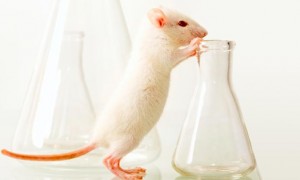As I read through the different blogs posted, there are questions being asked that can only be answered through experiments. Often times, these experiments are performed through observational studies and comparing control groups but there is another common forms of experiment that I have noticed in these blogs: Experiments performed on rodents, especially mice. I began to wonder why mice are the subject of many of experiments that are related to humans considering we are so different from these rodents. Mice are small and therefore easy to store. They also are not hard to keep alive and maintain. Mice are also used in experiments when it is not ethical to use humans for the testing. However, I decided that I wanted to look at the science behind why mice make such good test subjects especially in relation to learning about the human body.
According to LiveScience Journal, Mice and rats are not only affordable, but also easily inbred. In fact adult mice can reproduce almost every three weeks. This allows for a large amount of test subjects to have the same genetic makeup, which makes for more accurate test results. Although hard to believe, mice and rats actually do have a lot of similarities to human processes. Their physical bodies are so well understood by scientists that any change in them during experiments is easily detected.
Mice also are commonly found to have an immunodeficiency or an immune system that does not function properly. This allows researchers to grow human tissue on mice and has greatly helped the research in AIDS and certain cancers according to Your Genome Topics. They also are good specimens when scientists are researching human genetic disorders because of how the mice are able to simulate the diseases.
On the contrary, rats may be even better than mice when it comes to science. Not only are rats larger but also The National Institute of Health reports they are better subjects for studying cardiovascular diseases. Rats overall physiology are more similar to humans than the mouse’s physiology is to humans, but are not as manageable or as easily bred as mice. As far as the scientific world knows now and has known for years, mice are the most efficient and accurate substitute for humans when the experiment is unethical.



Ever since I was a little kid, I would hear or watch on the tv different experiments that mice or rats are being used for. I had absolutely no idea that researchers grow human tissue on mice. Some may argue that it is unethical to use any living creature at all for experiments. I found an article that talks about whether animal research is ethical or not and how animal rights extremist are totally against it.
https://www.ncbi.nlm.nih.gov/pmc/articles/PMC2002542/